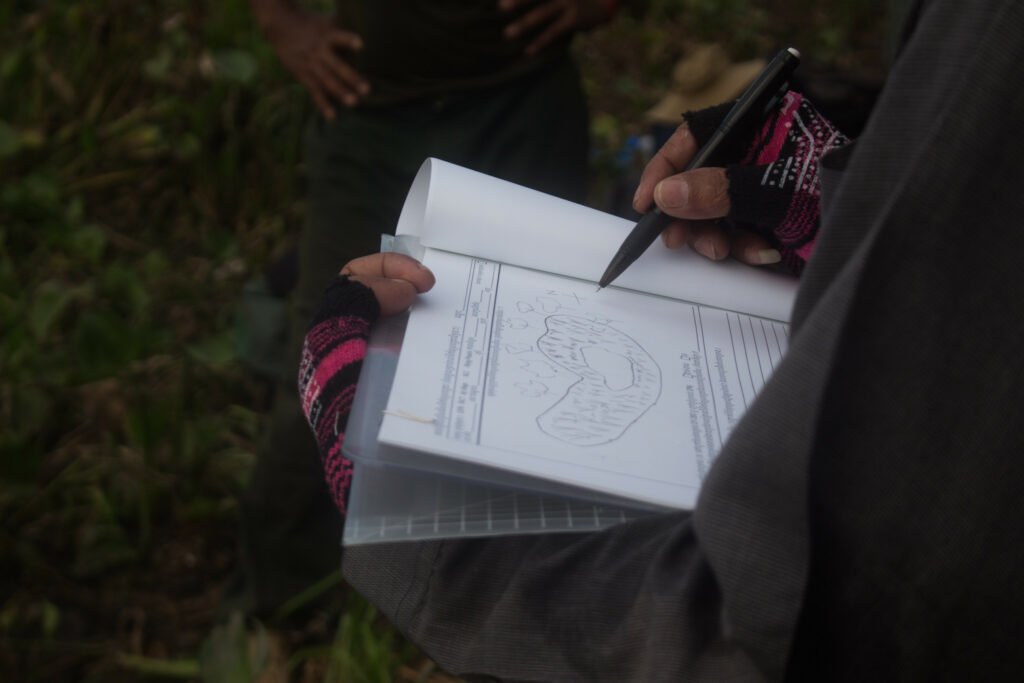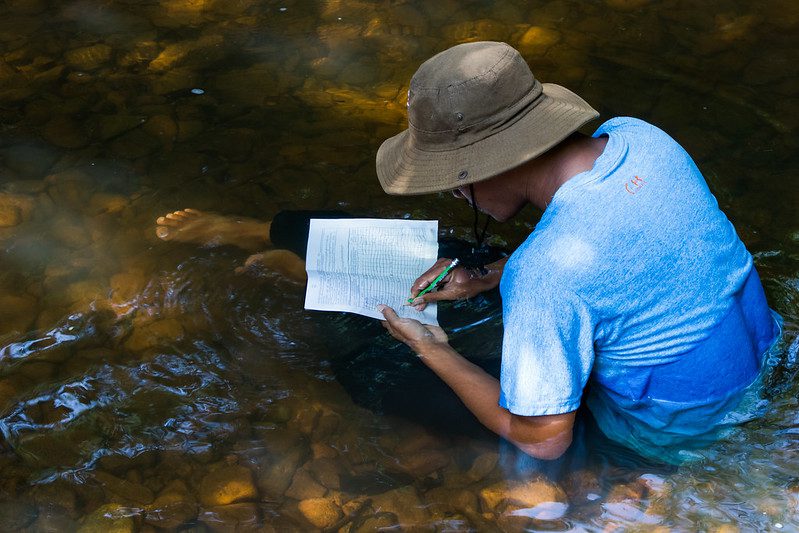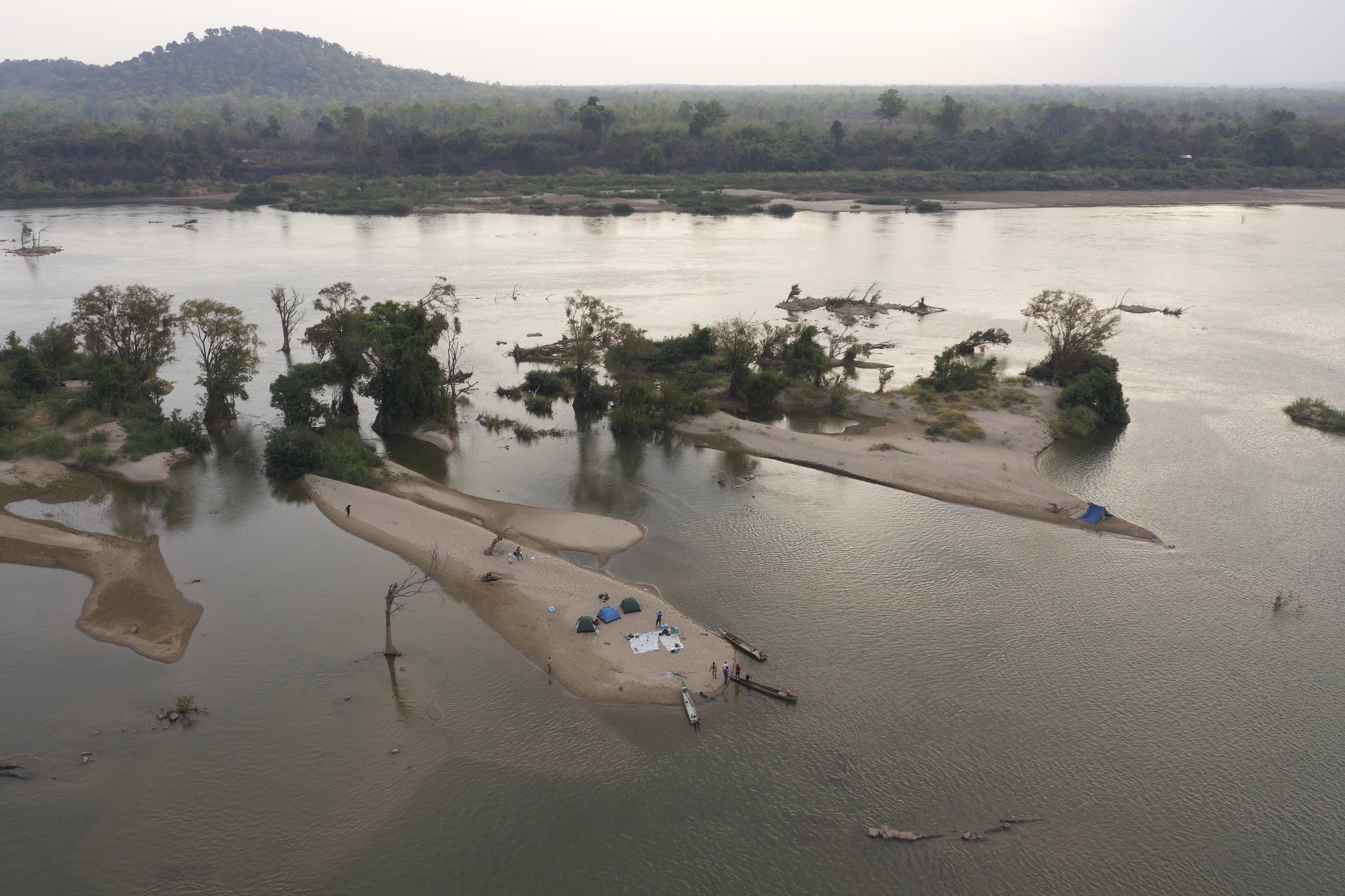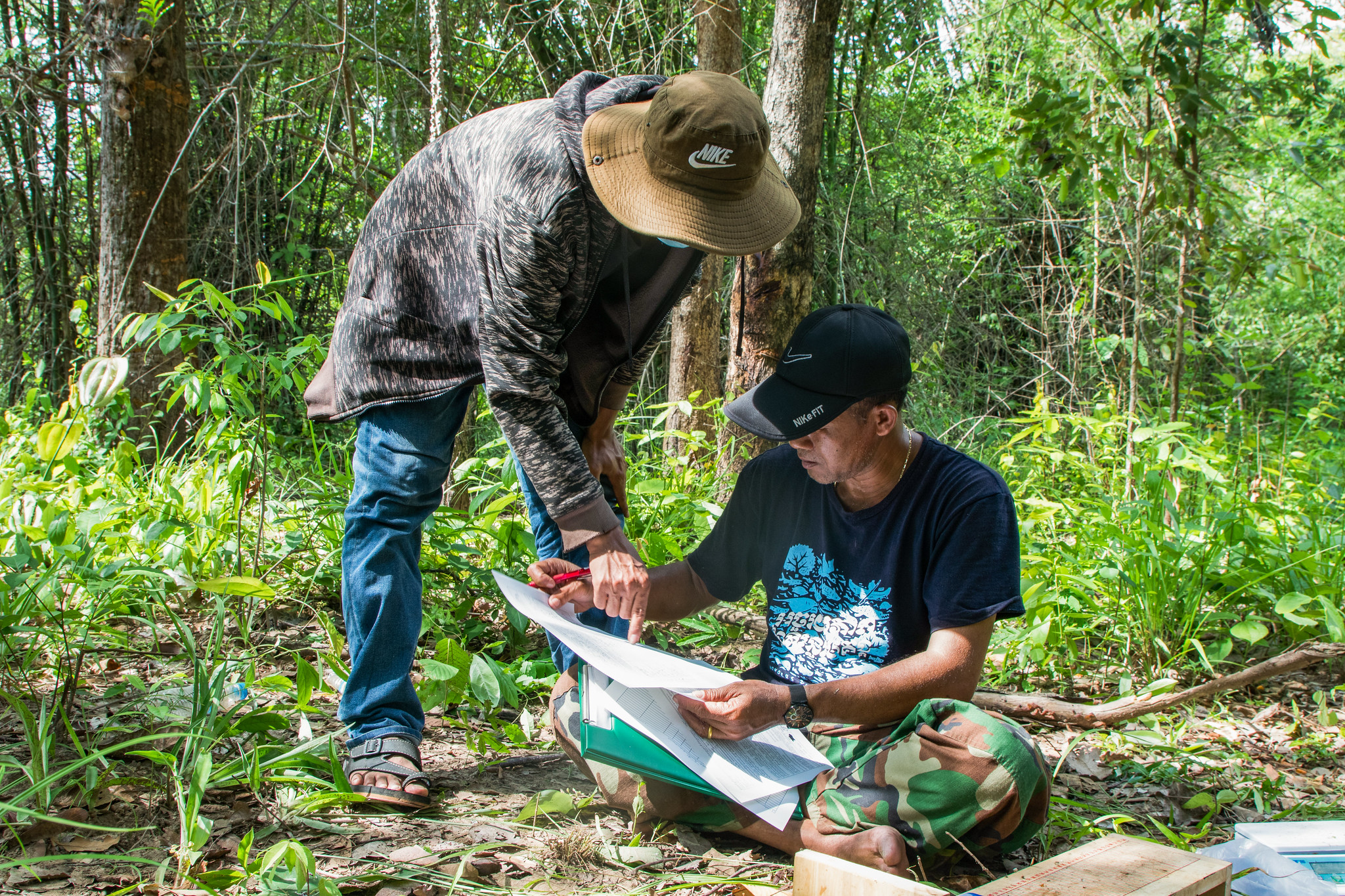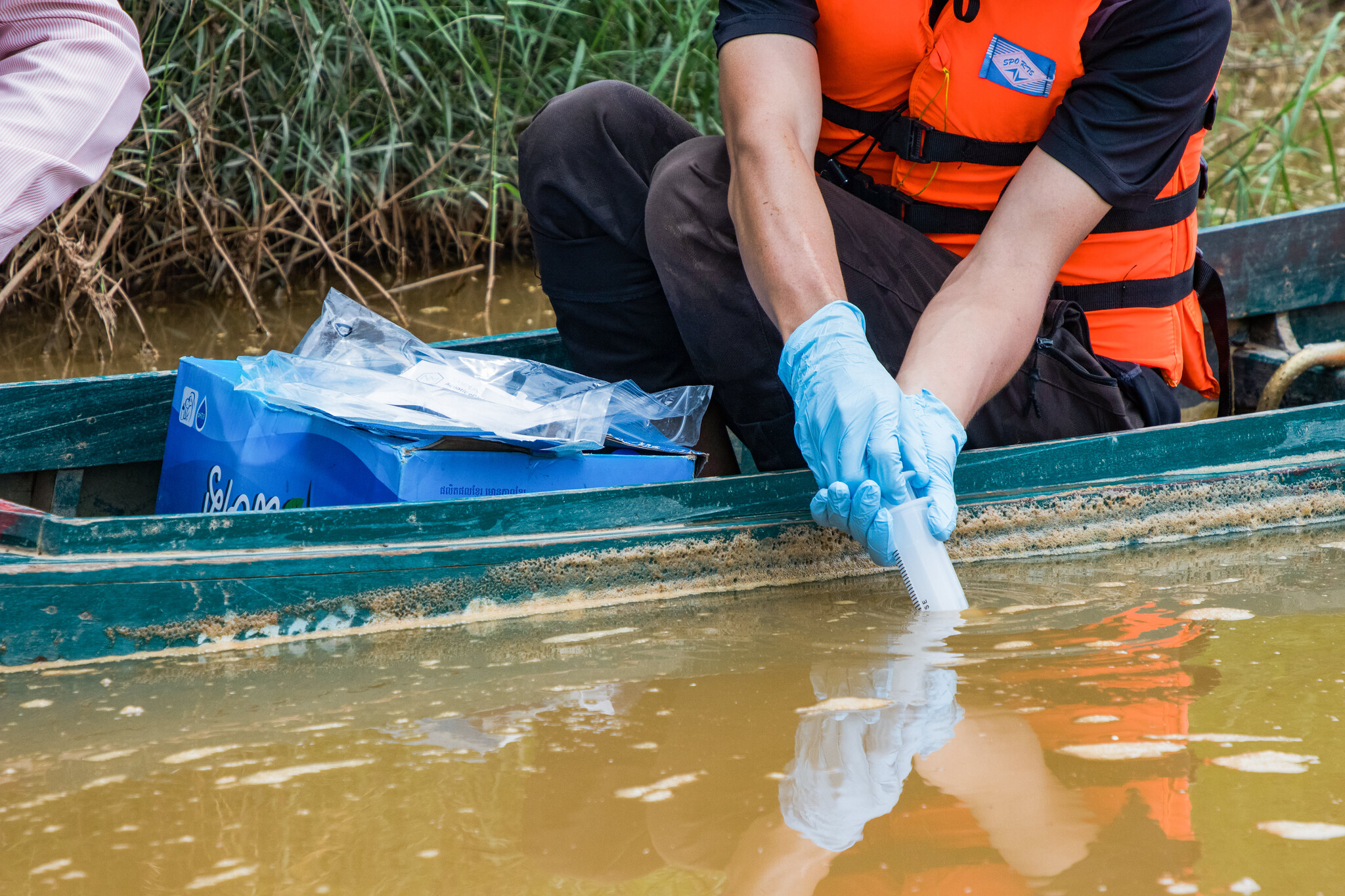

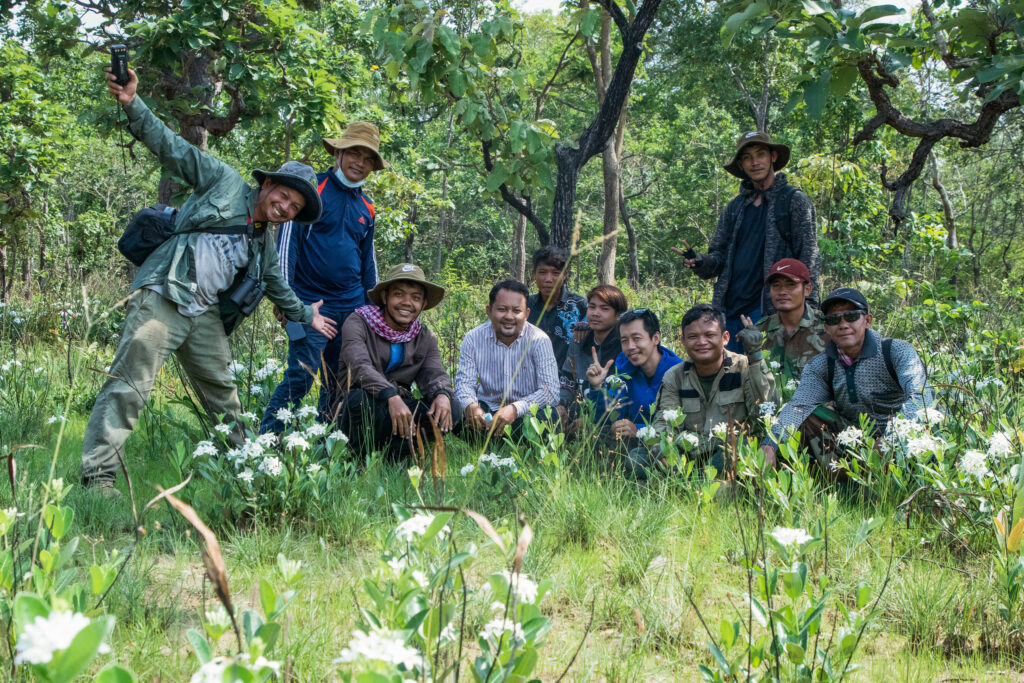
Project evaluations are a valuable process to determine whether conservation activities are achieving their desired impacts. From 2020–2022, the Critical Ecosystem Partnership Fund (CEPF) contracted FISHBIO to conduct an independent evaluation of multiple projects that they recently funded in Cambodia, all of which focused on improving the management of freshwater resources and the conservation of freshwater biodiversity. The projects covered a diverse array of objectives, from increasing youth involvement in natural resource management to reintroducing a locally extinct species, the Siamese crocodile. The purpose of the evaluation was to collect concrete data to assess how each project impacted the ecosystems and human communities where it was based.
To develop a framework for project evaluation, FISHBIO collaborated with fisheries biologist Dr. Vittoria Elliott from the Smithsonian Institution and social scientist Dr. Joanne Millar of Charles Sturt University. The assessment consisted of three components:
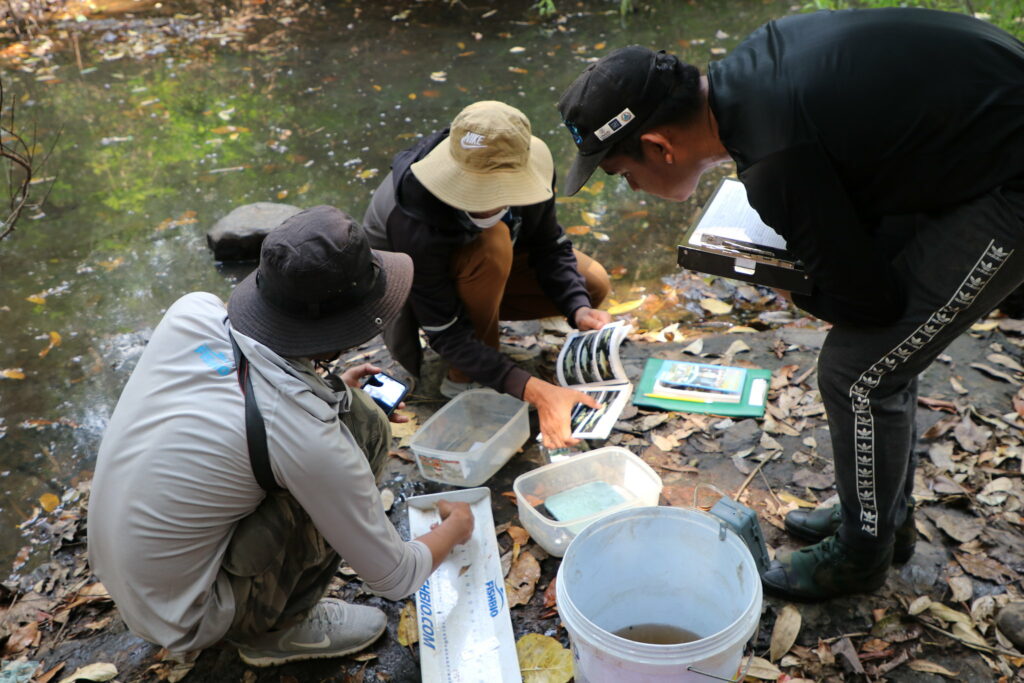
This framework was used to evaluate a subset of six CEPF-funded projects. Baseline and endline ecological surveys were conducted to identify changes over the project duration. These surveys included the use of experimental gill nets, cast nets, and environmental DNA, as well as the gears of local fishers to capture as wide a diversity of fishes as possible and thereby better understand the fish community in each project location. The civil society evaluation assessed the capacities of each grantee organization through in-depth interviews, and sought to obtain nuanced information on their strengths and needs. Finally, community surveys were used to interview a diverse cross-section of project community members and local leadership to better understand how different groups have – or have not – been impacted by and involved in project activities.
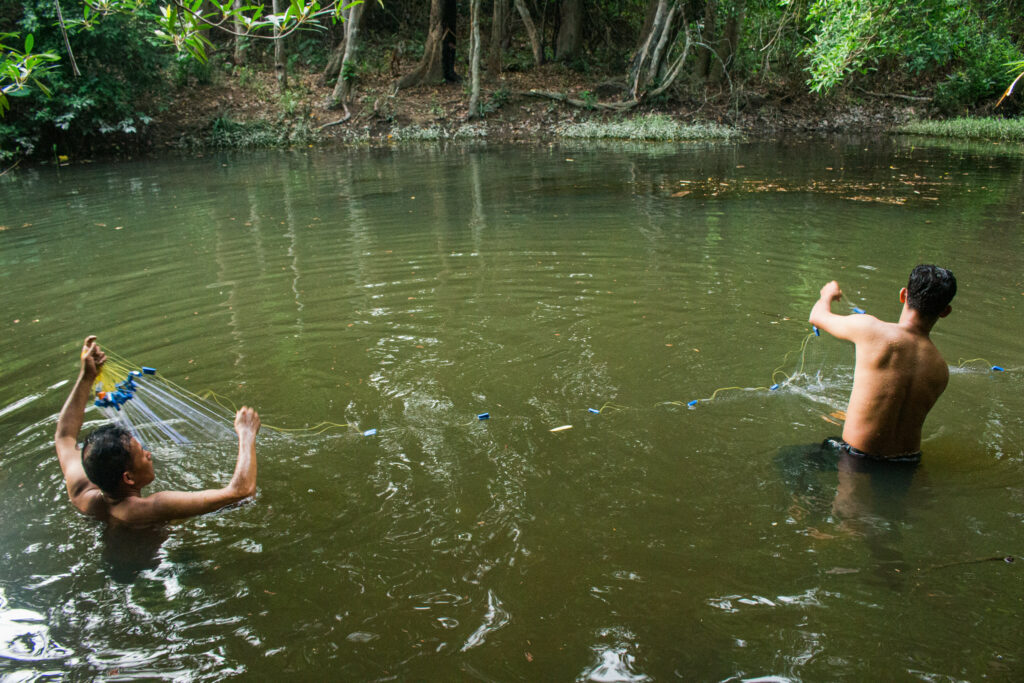
Due to international travel restrictions related to the COVID-19 pandemic, FISHBIO remotely coordinated the baseline field surveys that were conducted by the Cambodian group Young Eco (YEA) in early 2021. FISHBIO staff joined YEA to conduct endline surveys in early 2022, and used the information from each data collection effort to prepare evaluation reports for each project grantee and for CEPF that identified project successes, shortfalls, and suggestions for future directions. In addition, FISHBIO and YEA held an endline workshop on the evaluation effort for all grantee organizations in order to facilitate discussion and learning. The evaluation framework developed by this project could serve as a model for other organizations seeking to evaluate freshwater conservation efforts across the Mekong Basin and beyond.
